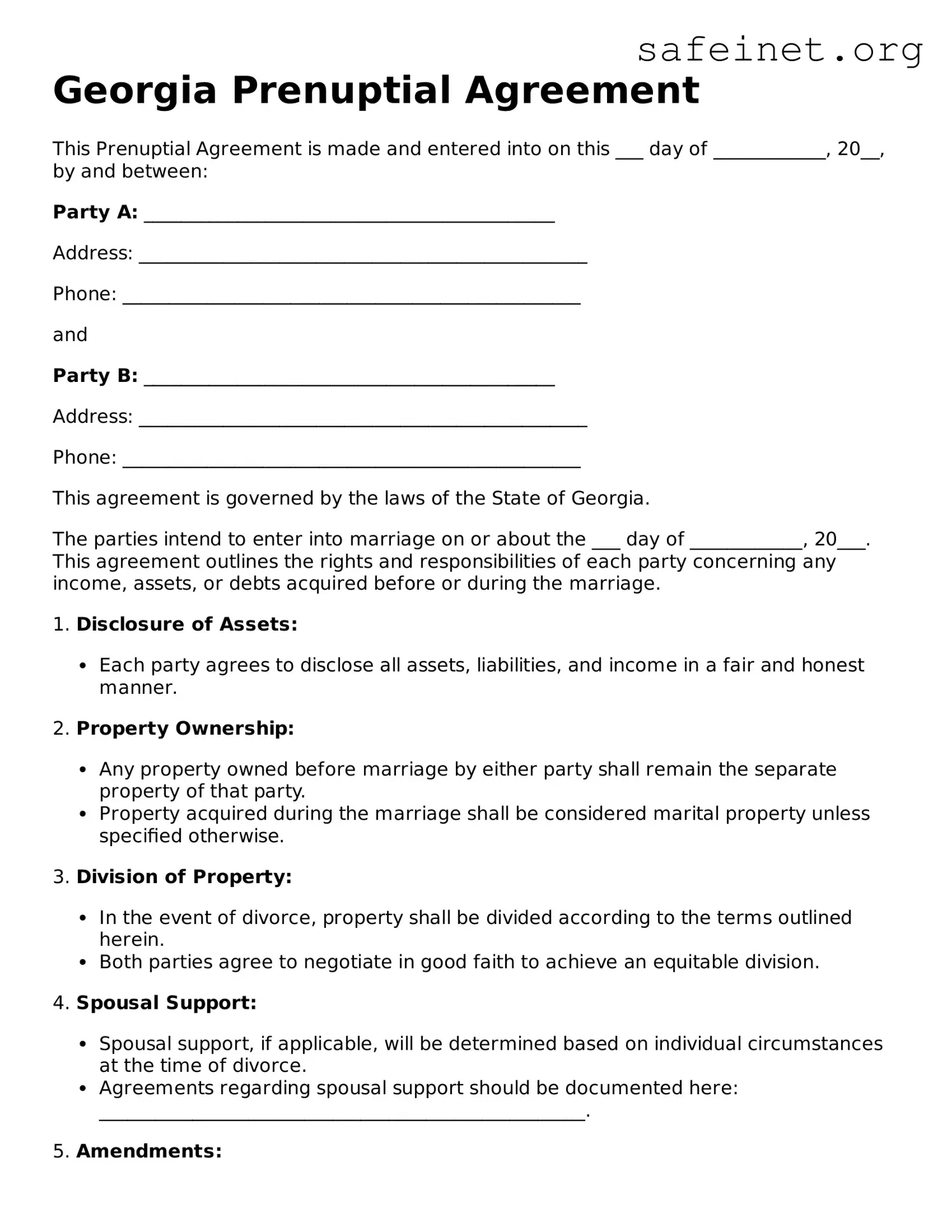What is a prenuptial agreement in Georgia?
A prenuptial agreement, often referred to as a “prenup,” is a legal document created by two individuals before they marry. This contract outlines the parties’ rights and obligations regarding financial matters, property ownership, and asset division in the event of divorce or death. The agreement aims to provide clarity and predictability in financial affairs and can help prevent conflicts later on.
Is a prenuptial agreement legally binding in Georgia?
Yes, a prenuptial agreement can be legally binding in Georgia as long as it meets certain conditions. Both parties must enter into the agreement voluntarily and with full understanding of its terms. The agreement should also be in writing and signed by both parties. Additionally, it is essential that the agreement is fair and does not leave one party in a state of extreme disadvantage.
What should be included in a Georgia prenuptial agreement?
A well-drafted prenuptial agreement in Georgia may cover various aspects, including the division of property and debts, spousal support, and management of financial affairs during the marriage. Couples may also specify how to handle inheritances or business interests. However, certain matters, such as child custody and child support, cannot be enforced through a prenup, as these decisions must prioritize the best interests of the child involved.
How do I create a prenuptial agreement in Georgia?
To create a prenuptial agreement in Georgia, both partners should consider consulting with legal professionals who specialize in family law. It is important that each party has independent legal counsel to ensure that their interests are well represented. The drafting process will typically involve discussing the couple’s financial situations, future goals, and desired terms. After both parties agree to the terms, the document should be signed and witnessed to ensure its enforceability.
Can a prenuptial agreement be modified after marriage?
Yes, a prenuptial agreement can be modified after marriage. Both parties must agree to the modifications, and it is recommended that the changes are documented in writing, including signatures from both individuals. Just like the original agreement, modifications should be fair and mutually beneficial to remain enforceable in the eyes of the law.
What happens if we do not have a prenuptial agreement?
Without a prenuptial agreement, Georgia law determines how assets and debts will be divided in the event of a divorce. This means the court will likely apply state laws regarding equitable distribution, which does not necessarily mean an equal split. Instead, the court will consider various factors, such as the length of the marriage and each party’s financial circumstances. Having no prenup can lead to uncertainty and potentially contentious negotiations during a divorce.
How can I ensure my prenuptial agreement will be enforced in Georgia?
To increase the likelihood that a prenuptial agreement will be enforced, it is essential to follow legal requirements when drafting and signing the document. Both parties should fully disclose their financial situations at the time of the agreement. Having independent legal counsel for each party is also a wise choice, as it helps ensure that both individuals understand the terms and implications of the agreement. Lastly, avoiding any element of coercion or pressure when signing is crucial for its validity.
